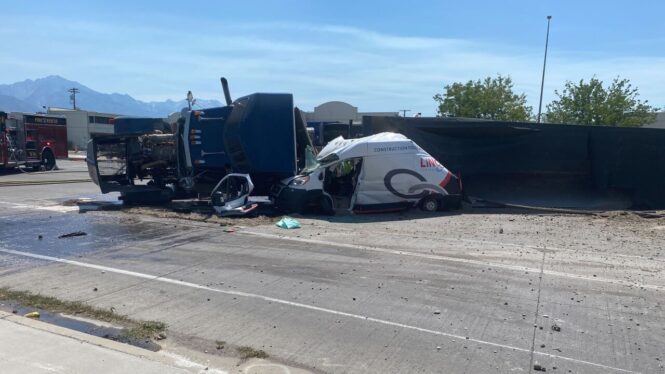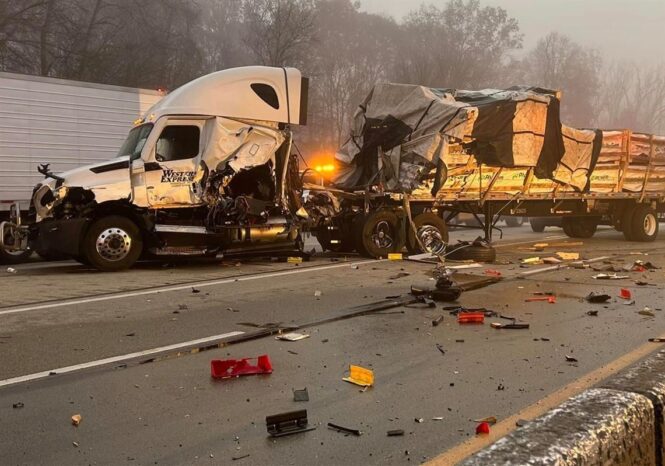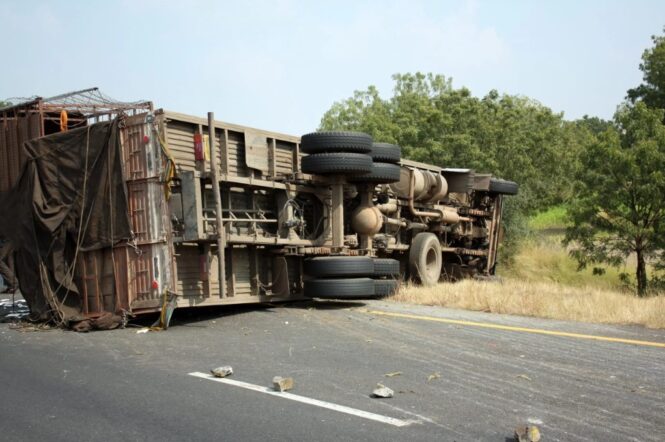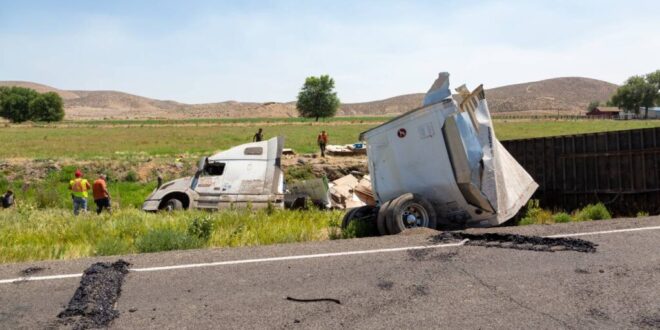Truck accidents are among the most severe and devastating types of accidents that can happen on the road. Heavy commercial trucks can weigh as much as 80,000 pounds when fully loaded. When compared to a typical passenger vehicle — from about 2,500 pounds for smaller passenger vehicles to about 6,000 pounds for larger SUVs — the weight and size discrepancy often leads to catastrophic damage and can cause long-term problems for the victim or victims.
According to the 2023 Pennsylvania Crash Facts & Statistics report from the Pennsylvania Department of Transportation, there were 110,382 reported crashes in the state that year, 6,685 of which involved heavy trucks. There were 1,209 total fatalities caused by crashes (138 of which were caused by heavy truck-involved crashes).
With some quick math, it’s abundantly clear just how dangerous truck accidents are. Truck crashes made up just 6% of all crashes in the state in 2023, while truck crashes accounted for nearly 12% of the total fatalities.
Truck accidents are exceptionally dangerous and often life-altering for not just the victim but for their family and loved ones as well. Whether you were the victim in a truck accident or if it was a loved one, understanding your legal options to pursue financial compensation to cover your medical expenses, lost wages, pain and suffering, and more is vital to making an informed decision on the next steps to take.
Read on to better understand the avenues available to you and your family.
Determining Fault in a Truck Accident Case

Pennsylvania motor vehicle laws follow a “no-fault” system for minor accidents, which requires that individuals involved in a minor accident receive compensation from their insurance companies. However, this system does not apply to severe accidents.
In severe truck accident cases, fault can be assigned to a variety of parties, including but not limited to:
- The driver
- The trucking company
- The truck manufacture
- Third-party contractors
Determining who is at fault can be a drawn-out process mired in legal battles, which is why it’s vital to work with a law firm you can trust when pursuing one of these claims.
Defining Damages in PA Truck Accident Laws
While there are caps set on damages that can be recovered in certain types of cases in Pennsylvania, this is typically not the case when it comes to truck accidents.
Under Pennsylvania law, the damages that can be pursued in a truck accident lawsuit can include:
- Economic damages ─ These include any quantifiable monetary loss caused by the accident, including lost wages, medical expenses, property damage, etc.
- Non-economic damages ─ These include physical changes to the victim’s life, including loss of enjoyment of life, pain and suffering, emotional distress, etc.
- Punitive damages ─ These damages can be pursued if the defendant was acting in a particularly egregious or reckless manner, including driving a vehicle that surpassed its weight limit, driving past the time restriction placed on all truck drivers, excessive speeding, etc. These types of damages are often employed to both punish the defendant for their behavior as well as to deter these actions in the future.
Pennsylvania follows a modified comparative fault system when it comes to the damage compensation a plaintiff can receive. This means that the victim can still be partially responsible for the collision and still be eligible to receive compensation for the accident.
What is the Statute of Limitations for a Truck Accident Case in Pennsylvania?

In Pennsylvania, the statute of limitations sets a time limit for filing a lawsuit following a truck accident. This time frame is crucial for ensuring that claims are made while evidence is still fresh and witnesses are available. Here are the key details:
General Rule
Pennsylvania law mandates that an injured party, whether dealing with bodily injury or property damage, must file a lawsuit within two years of the accident.
Failing to do so within this period results in losing the right to pursue compensation. This two-year window typically starts on the date of the accident.
Exceptions to the Two-Year Rule
1. Government-Owned Trucks
If the truck involved in the accident was government-owned, special procedures apply. The injured party may need to file a notice of claim before proceeding with any legal action.
This notice often has a much shorter deadline, sometimes within six months of the accident, depending on the specific government entity involved.
Therefore, immediate legal consultation is advised to comply with these additional requirements.
2. Minor Victims
For victims who are minors (under 18 years old) at the time of the accident, the statute of limitations is extended. The two-year period does not begin until the minor turns 18.
For instance, if the victim was 15 years old at the time of the accident, they would have until their 20th birthday to file a lawsuit.
This extended period allows minors the opportunity to seek compensation once they reach adulthood. However, exceptions can apply, particularly in wrongful death cases, so it is essential to consult with a lawyer to understand specific circumstances and deadlines.
3. Discovery Rule

In some cases, injuries or damages are not immediately apparent. The discovery rule may apply, allowing the statute of limitations to start from the date the injury was discovered or reasonably should have been discovered, rather than the date of the accident.
This exception requires proving that the injury was not and could not have been known immediately after the accident.
4. Defendant’s Absence
If the at-fault party leaves Pennsylvania after the accident and before a lawsuit can be filed, the period of their absence may not count towards the two-year limit. This means the clock may pause until the defendant returns to the state.
Work With Experts to Secure Compensation
With legal professionals, such as Cohen, Feeley, Altemose & Rambo, you can find folks committed to bringing you the financial compensation you deserve.
Professionals with decades of legal experience, especially with truck accidents, have the knowledge and track record of success people can rely on in their time of need.
 Imagup General Magazine 2024
Imagup General Magazine 2024

